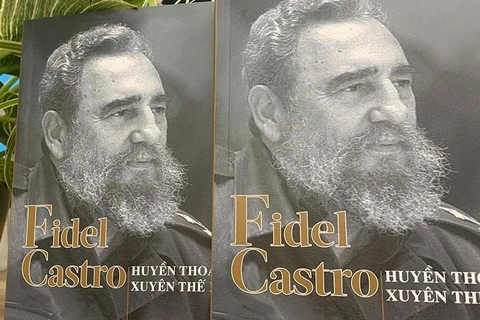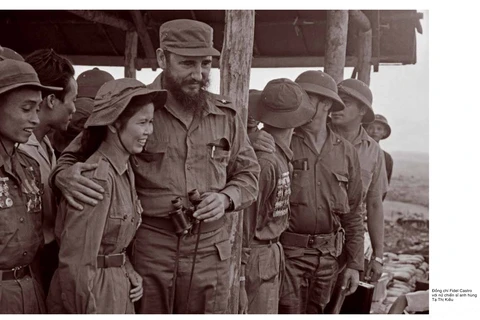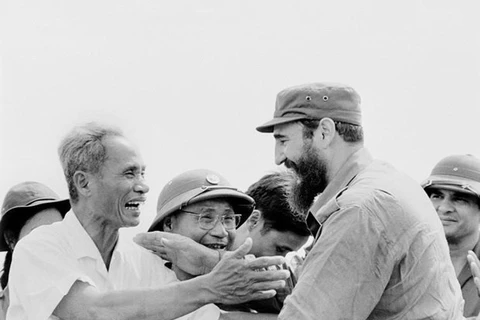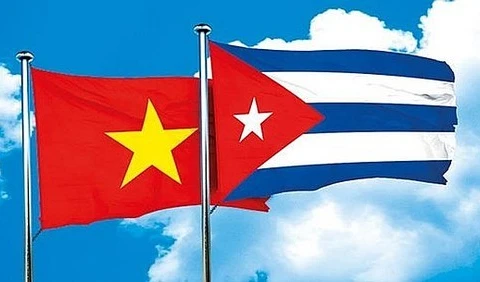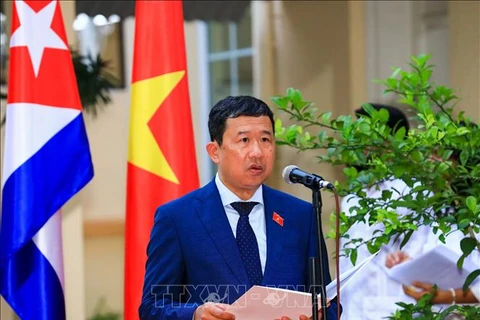 Cuban President Fidel Castro and soldiers of the Tri Thien Hue liberation army's Khe Sanh unit during a visit to the liberated zone in Quang Tri on September 15, 1973. (Photo: VNA)
Cuban President Fidel Castro and soldiers of the Tri Thien Hue liberation army's Khe Sanh unit during a visit to the liberated zone in Quang Tri on September 15, 1973. (Photo: VNA) The online newspaper Juventud Rebelde, Cuban national news agency ACN, and many other news outlets on September 12 published articles recounting the leader’s journey to the land.
In speeches and dialogues with Vietnamese officials, soldiers, and people during the visit, Fidel highlighted Vietnam's extraordinary role in the revolutionary movement and the liberation of peoples worldwide. He emphasised the clear thoughts and strategies of President Ho Chi Minh regarding the organisation, education, and training in the struggle for national independence, the rights of oppressed people, deep patriotism, and a desire to break free from the slavery yoke.
Cuban media stressed that Fidel's visit to Vietnam was a journey of friendship and solidarity, and of compassion and revolution that bound together the two peoples from two hemispheres.
An article on the website of Radio Reloj radio station had a title literally translated as "For Vietnam, Cuba is willing to shed blood," – an immortal statement by Fidel that reflects the deep bond and solidarity of Cuba with Vietnamese people.
In the extremely difficult moments of Vietnam's resistance war, Commander-in-Chief Fidel turned his foreign trips into opportunities to mobilise support from governments and peoples of various nations for Vietnam.
The article stressed that Cuba wholeheartedly supported Vietnam from the moment both countries officially established diplomatic relations in December 1960. Under Fidel's leadership, the Cuban Committee for Solidarity with South Vietnam was founded on September 25, 1963, spreading the spirit to schools, hospitals, factories, construction sites, armed forces, and the entire society.
Nowhere else in the world are there thousands of factories, schools, residential quarters named after Vietnamese heroes and places like in Cuba. Cuban experts, sailors, and workers worked alongside Vietnamese soldiers and people during bombings in Hai Phong and in local renowned projects like the Truong Son trail and the friendship hospital in Dong Hoi, Quang Binh.
Cuba also played a crucial role in rallying Latin American countries to support Vietnam's entry into the United Nations at the organisation’s 32nd General Assembly in 1977./.
VNA
